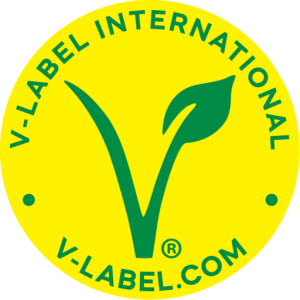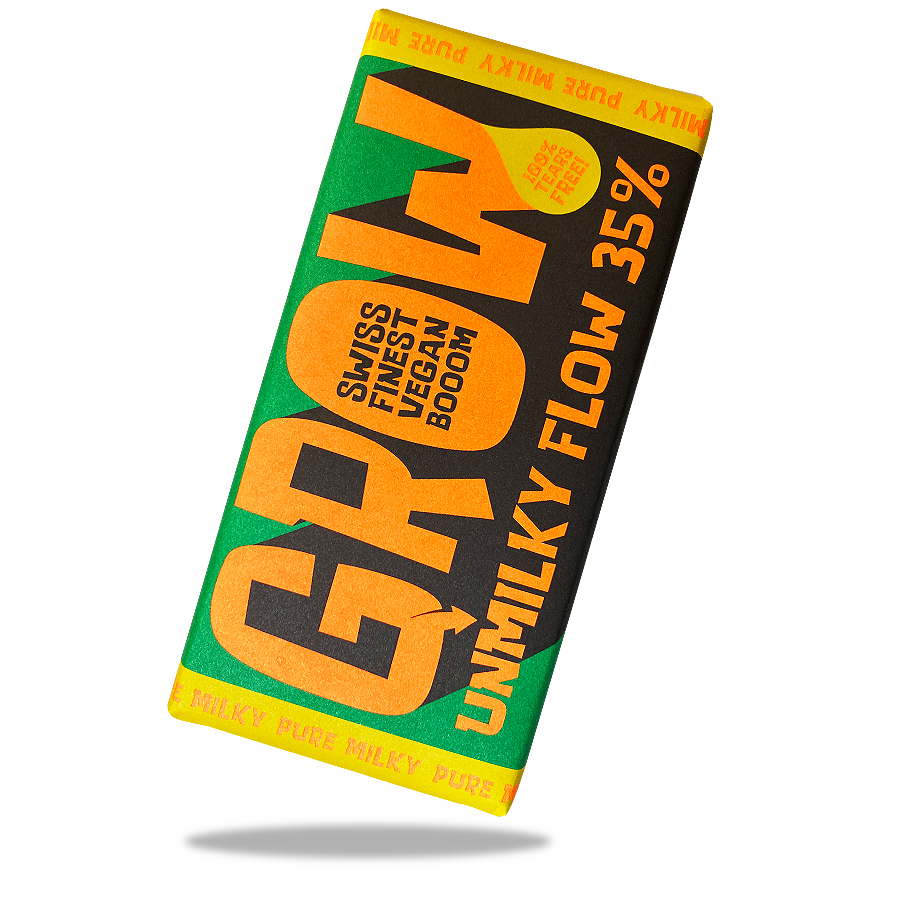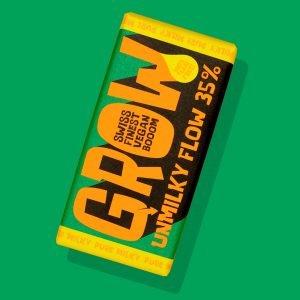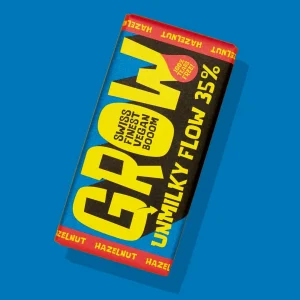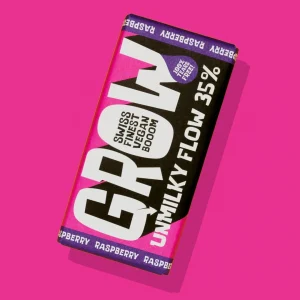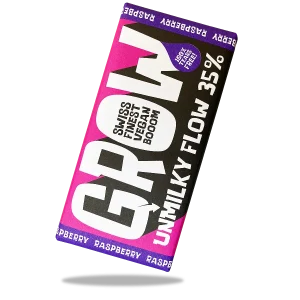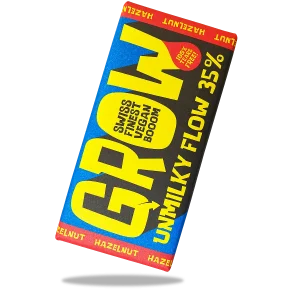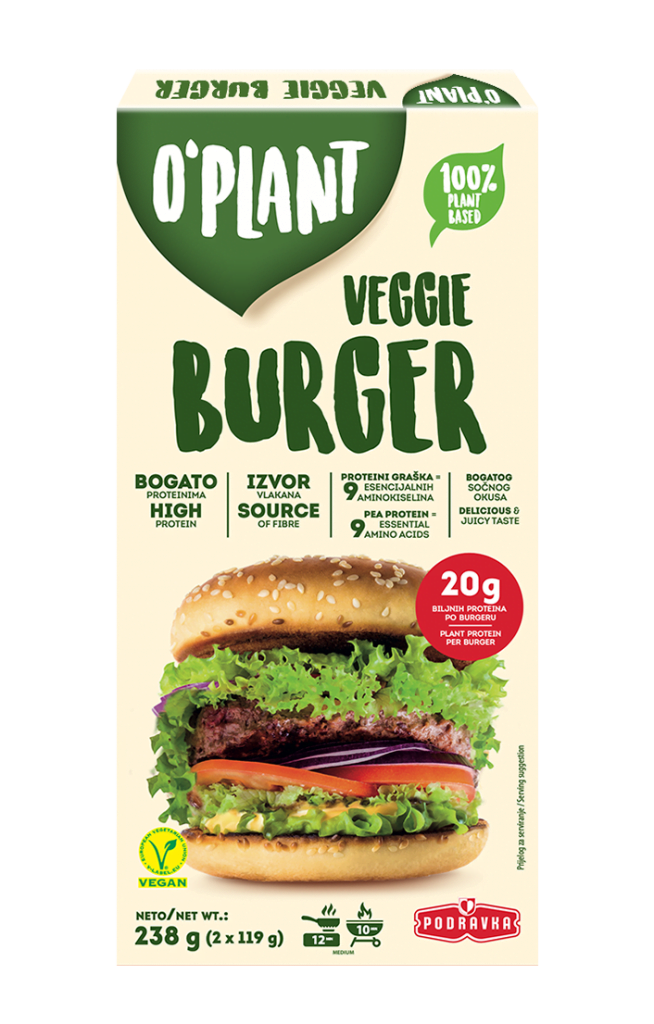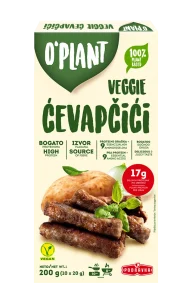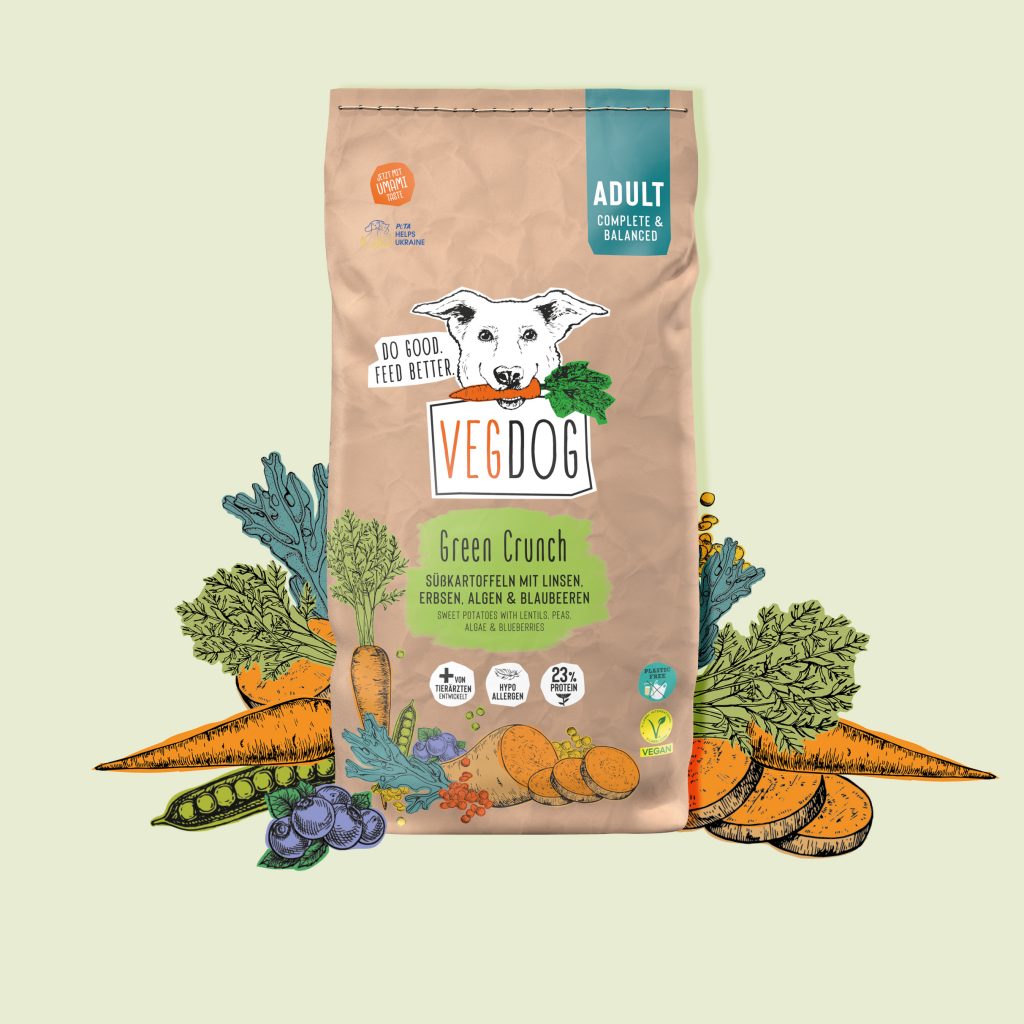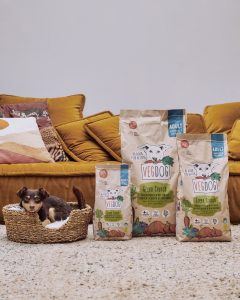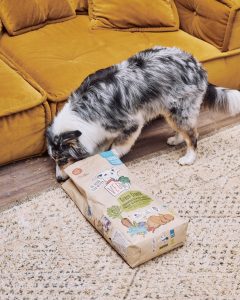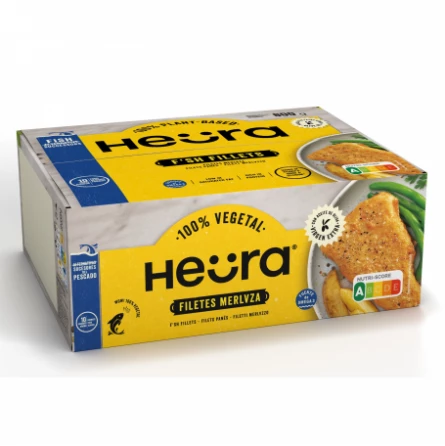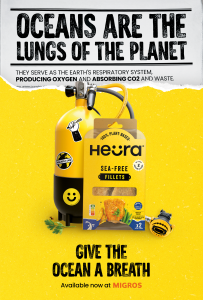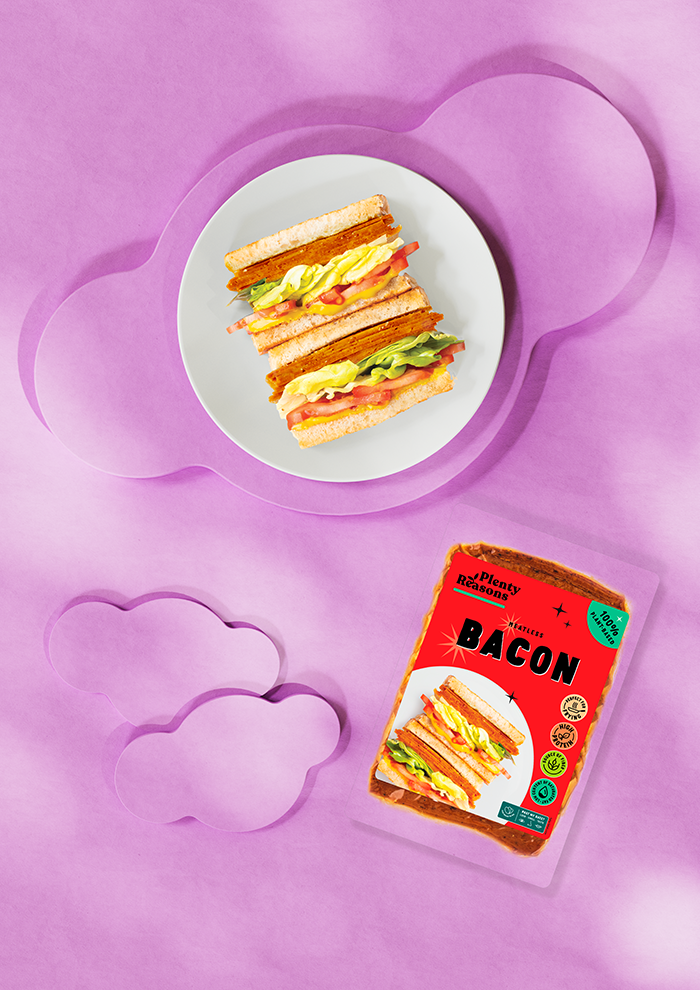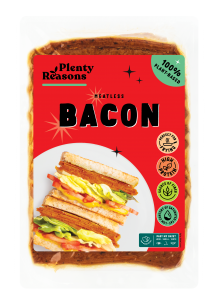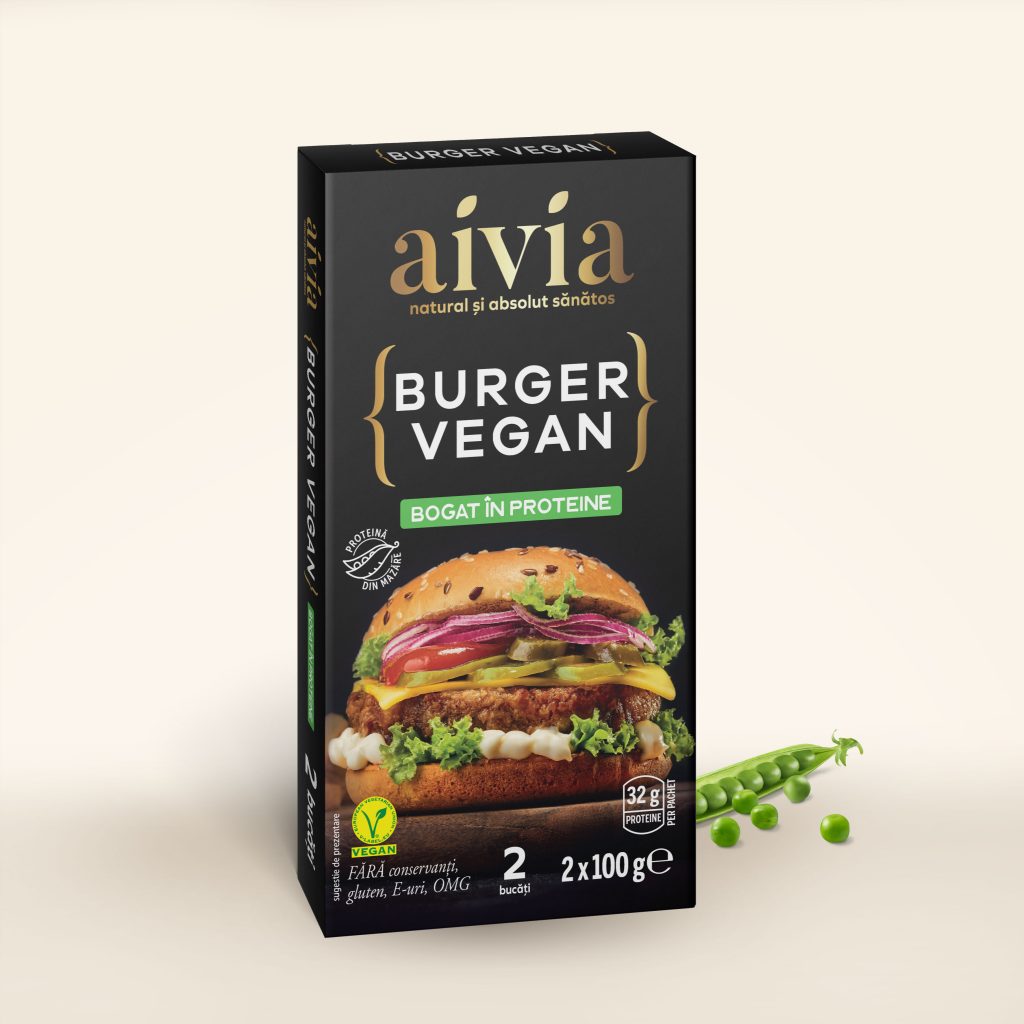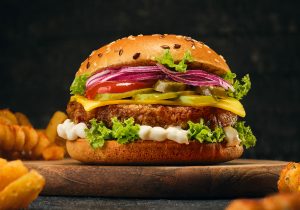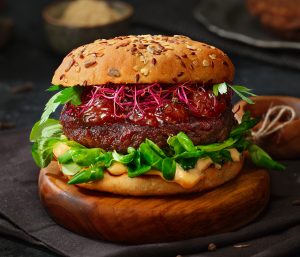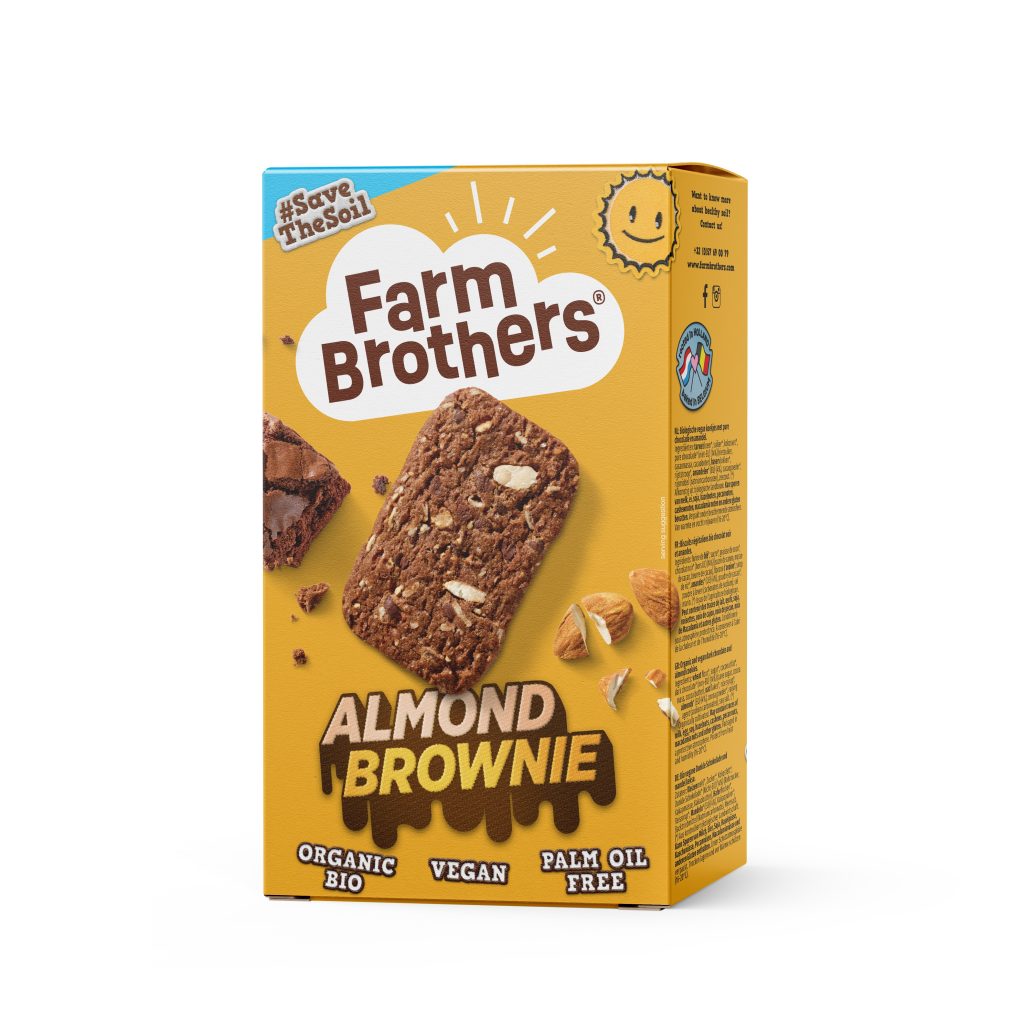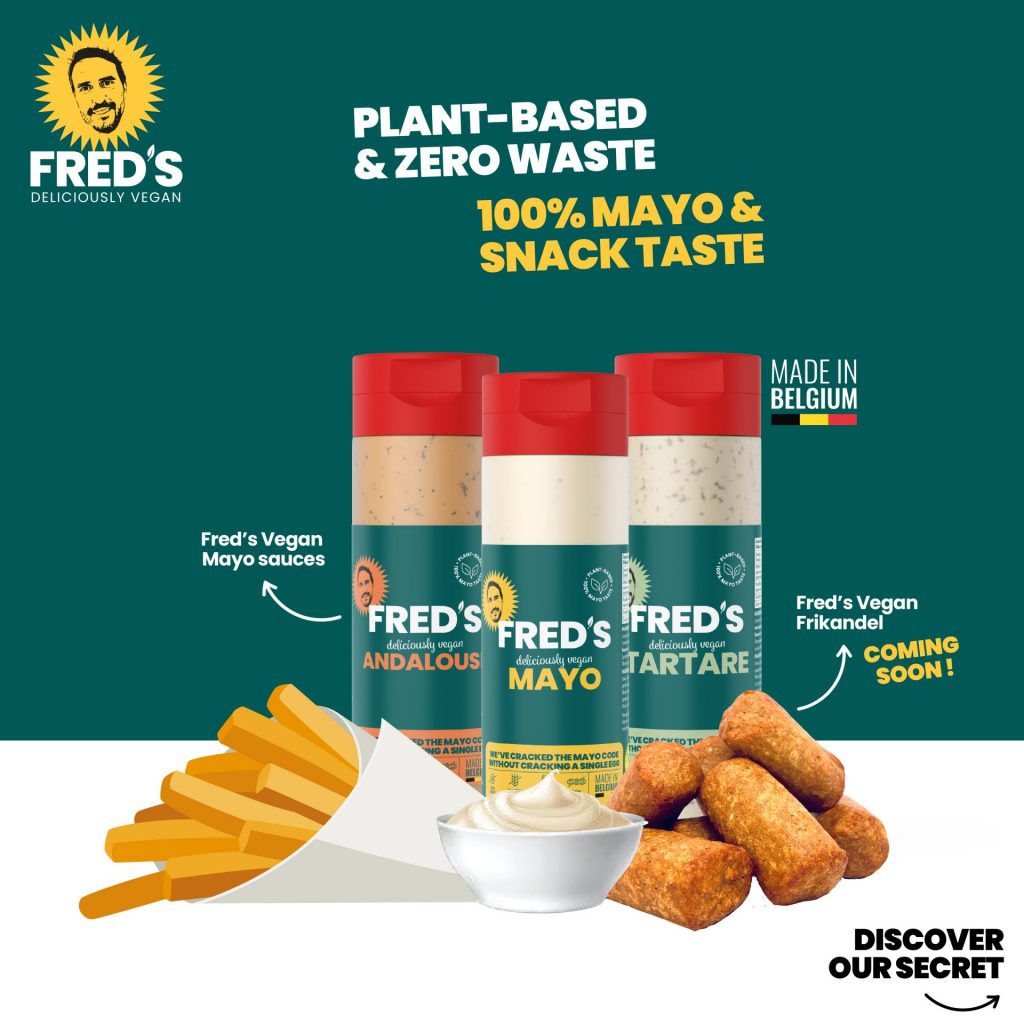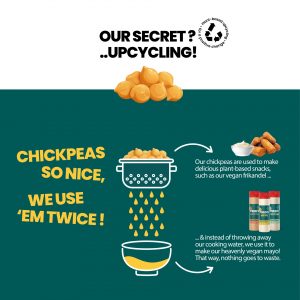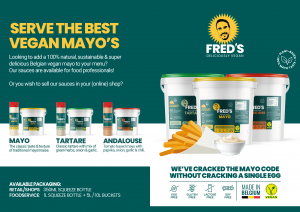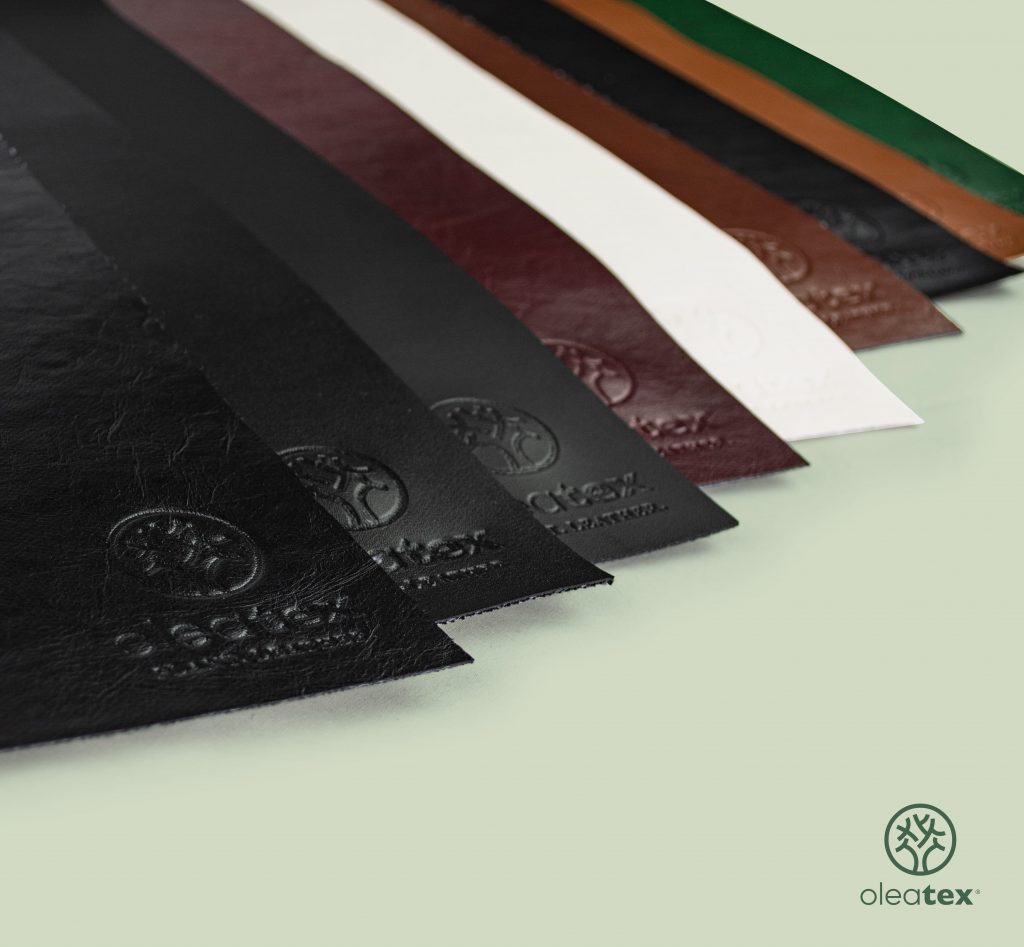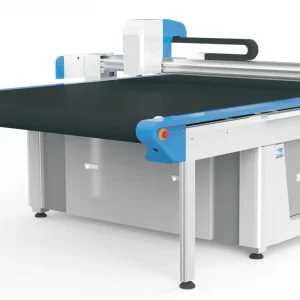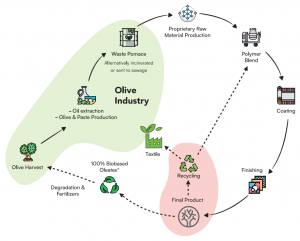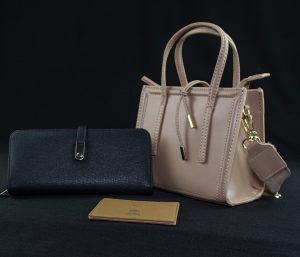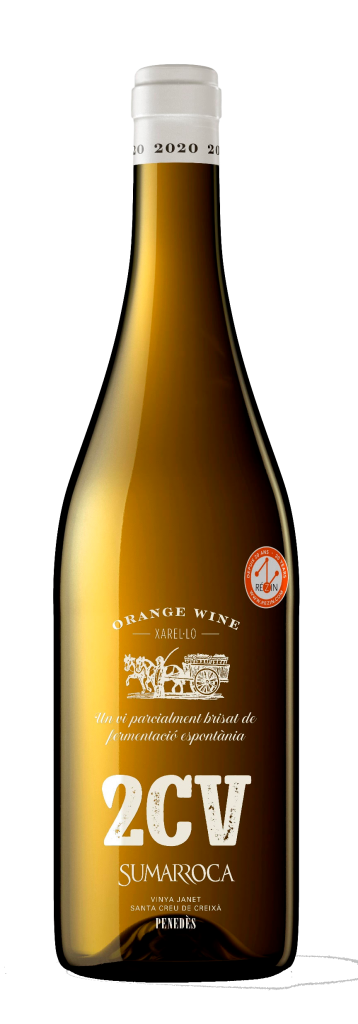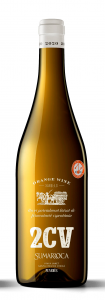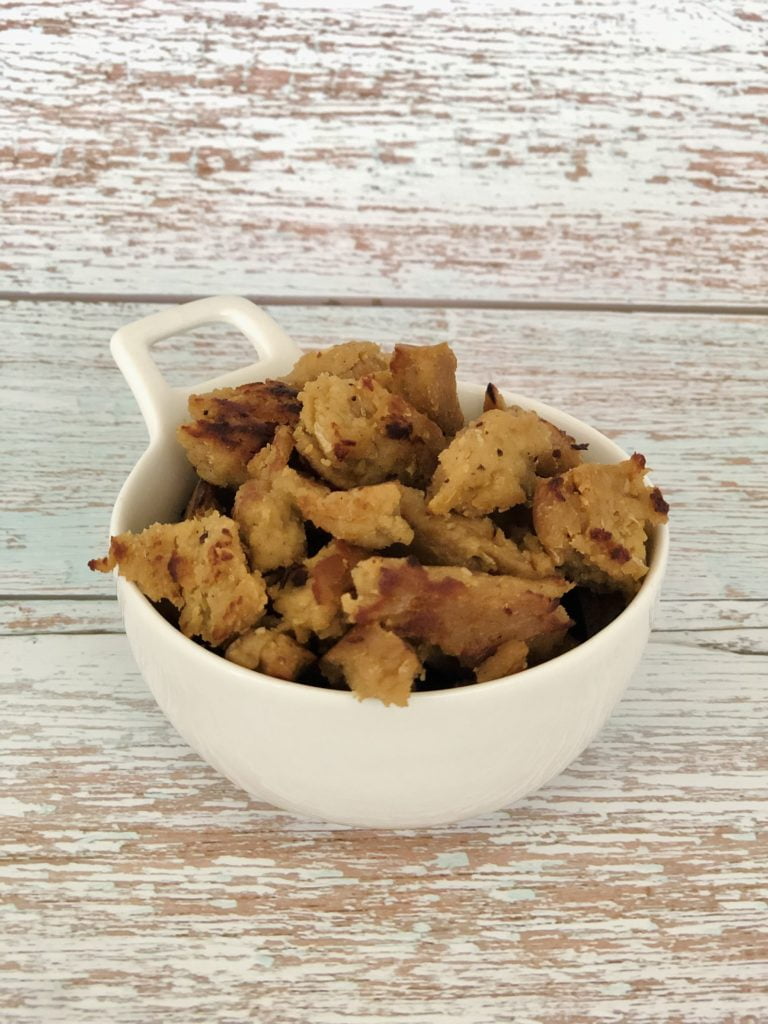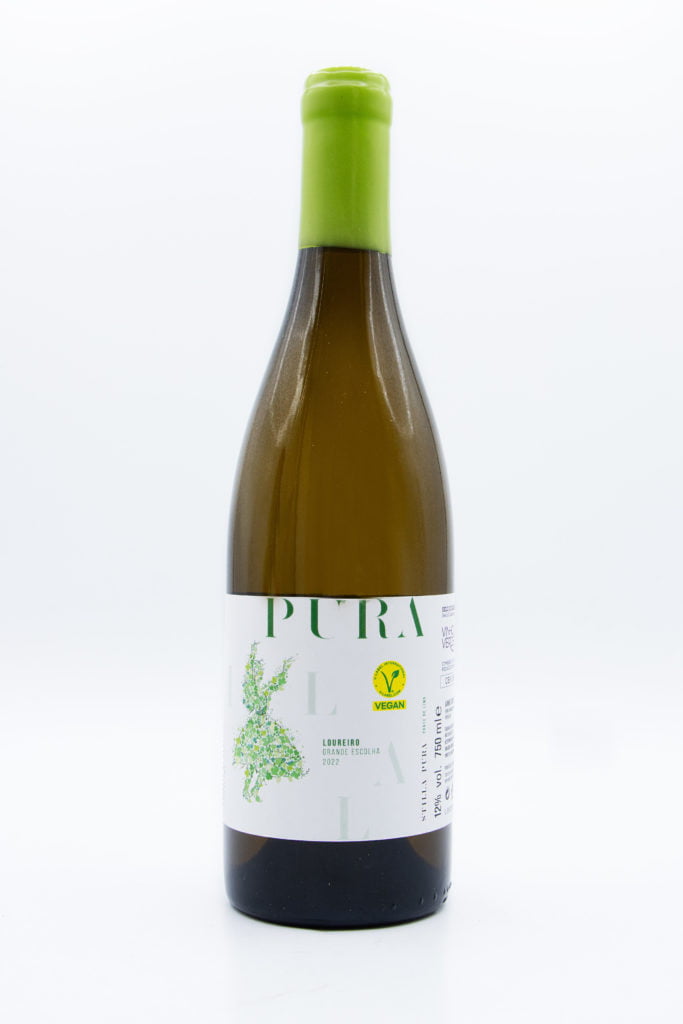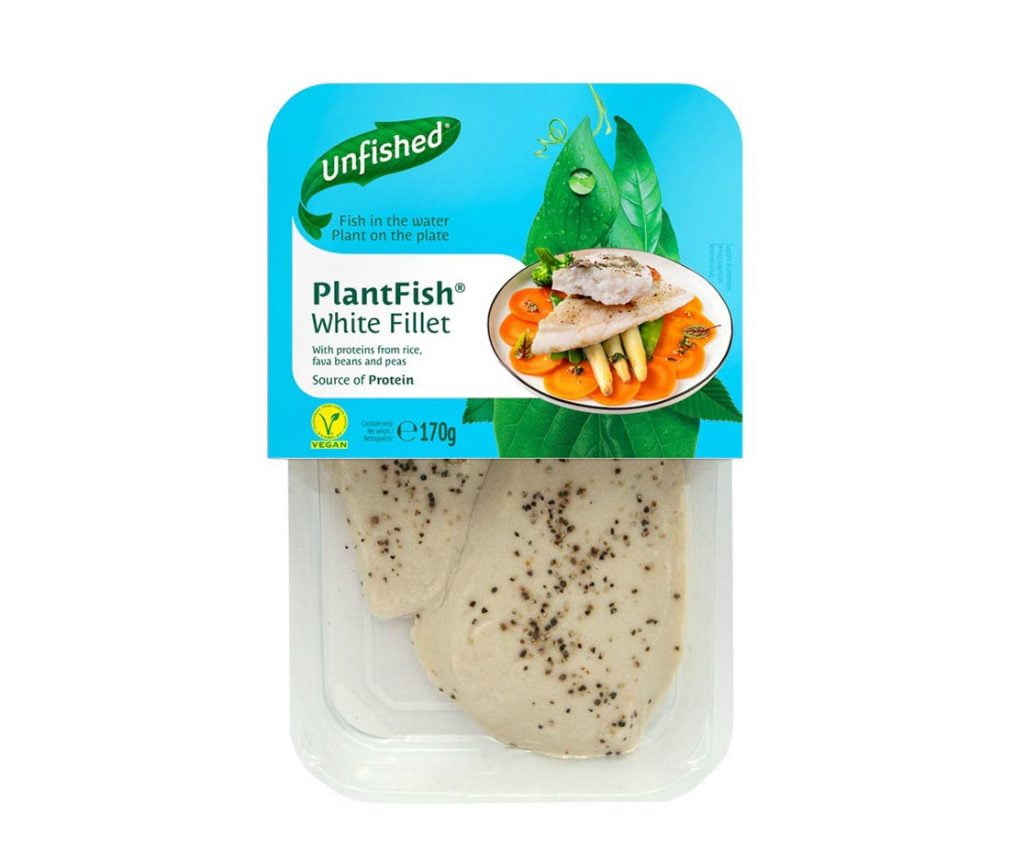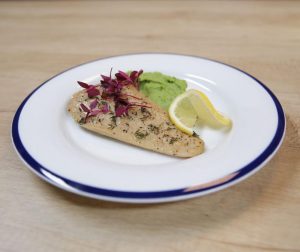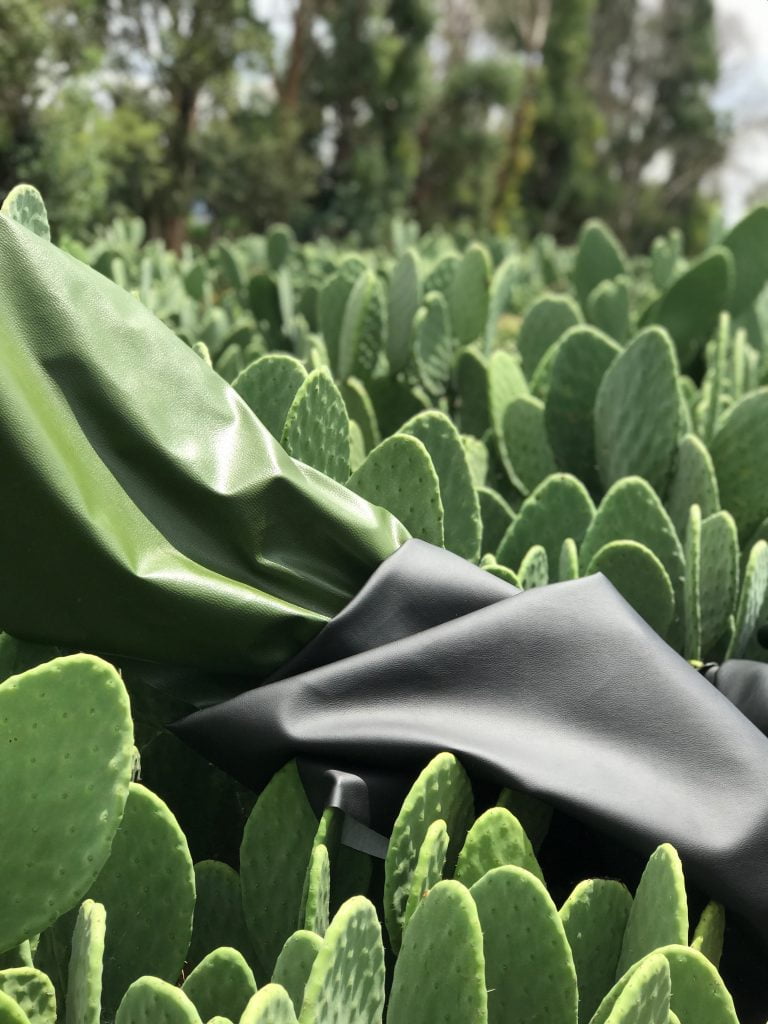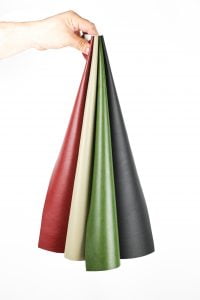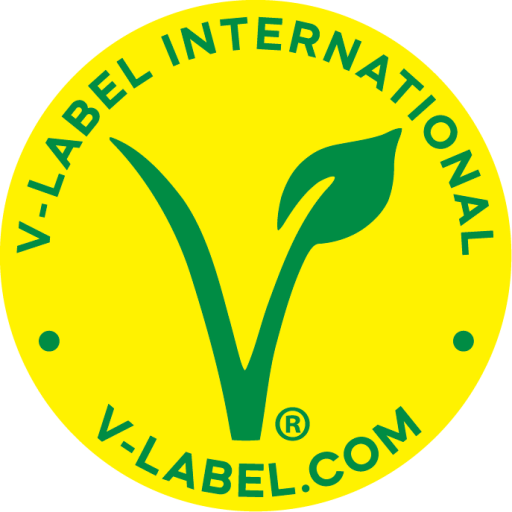
International V-Label Awards 2023
Product Description
(NOTE TO JURY: This is a combined entry for three products by the same company. We have combined these entries for the sole purpose of jury scoring. All information below applies to the three products.)
GROW unmilky flow [Pure, Hazelnut, and Raspberry] is a bean-to-bar chocolate which was developed with vegan chef Aris Guzman. It’s crafted sustainably from fair traded and organic cocoa beans. The exceptional recipe produces a chocolate flavor that is so similar to milk chocolate that even professional chocolatiers cannot distinguish between the two.
Product Description
(NOTE TO JURY: This entry is a combination of two entries by the same company, combined by V-Label solely for jury scoring. Information below applies to both products.)
OˈPLANT VEGGIE BURGER is a meatless burger based on pea protein, beneficial to the body, ecologically and ethically sound. The texture is perfect, with a luxurious flavour and exeptional juiciness. This product is suitable for vegans, flexitarians and all gourmands who want to eat delicious high quality food, while staying. The product is high in protein content and source of fibers.
OˈPLANT VEGGIE ĆEVAPČIĆI is a meatless ćevapčići based on pea protein, they are beneficial to the body, ecologically and ethically. Rich in pea protein = 9 essential amino acids – 17g vegetable protein per serving, fiber source, clean label (no palm oil, no soy, GMO free).
Product Description
(NOTE TO JURY: Due to the number of entries combined for scoring for this product range by this company, individual entry links are provided below for your viewing. Only this combined entry needs to be scored, considering all products within the range listed below.)
With our award-winning vegan brand “Vemondo”, we strive to make it easier for our customers to identify vegan substitute products. So it is very important to enable our costomers to make a conscious purchasing decision and to target flexitarians and vegans. We are constantly developing the diverse and tasty range of around 80 individual products on the basis of customer wishes and expectations.
Veganer Streichgenuss Classic
Veganer Streichgenuss mit Kräutern
Veganer Streichgenuss mit roter Paprika
Vemondo Bio Hafer Creme
Vemondo Bio Haferdrink ohne Zuckerzusatz
Vemondo Bio Mandeldrink ohne Zucker
Vemondo Bio Vegane Salatmayo
Vemondo Kokosdessert Kirsche
Vemondo Kokosnussjoghurt natur
Vemondo Vegan Cookies Dark Chocolate and caramel
Vemondo Vegane Burger Patties
Vemondo Vegane Kartoffel-Schupfnudeln
Vemondo Vegane Muffins Kakao
Vemondo Veganer Aufschnitt mit Grillgemüse
Vemondo Veganer Aufschnitt Mortadella
Vemondo Veganer Salat nach Art eines Fleischsalates
Vemondo Veganer Salat nach Art eines Kräuter Fleischsalates
Vemondo Veganes Cordon Bleu paniert
Vemondo Veganes Eis Cookie Dough
Vemondo Veganes Eis Salted Caramel
Vemondo Veganes Gyros mit Zwiebeln
Vemondo Veganes Hack
Vemondo Veganes Schnitzel paniert
Product Description
VEGDOG GREEN CRUNCH is the complete vegan food with an alternative protein source. Super digestible, sustainable and healthy – Volume 2! Because we’ve made our bestseller just that little bit better. The new recipe is even more digestible and tastes even tastier. What’s more, the packaging is 100% recyclable. Healthy, delicious, environmentally and animal friendly – all signs point to CRUNCH!
Product Description
Meet our new soy protein plant-based battered fish style fillet with extra virgin olive oil 2.6%. Nutritionally wise, we don’t conceive making plant-based products that can’t be eaten everyday, that’s why our newest fish is high in proteins, a source of omega-3, high in Vitamin D, B12, Iodine & Selenium and low in saturated fat. Most people say it’s like their grandma’s used to make, ois :’)
Product Description
Meatless Bacon delivers a smoky taste from natural, simple ingredients. A sustainable culinary alternative, it champions resource efficiency and emission reduction. A taste of the future for eco-conscious consumers.
Product Description
Taking care of your own health is a must for anyone who is here to protect the planet! Crafted without food additives such as preservatives, artificial flavors, enhancers, stabilizers, or any other ingredients detrimental to health, our burger stands as a beacon of clean, guilt-free indulgence. It’s a sumptuous creation that not only delights your taste buds but also nourishes your well-being, setting new standards for sustainable, completely additive-free deliciousness!
Product Description
Farm Brothers Almond Brownie: this cookie with almond pieces and dark chocolate crunches in your mouth with every bite. Irresistibly delicious and 100% vegan, organic and palmoil free! By buying this pack, you save a 12cm2 piece of degraded soil and make it organic, forever (fun fact: this is the size of 1 cookie!). Farm Brothers has a unique mission: a healthy soil for all generations to come. Why? Because a healthy soil, cultivated by organic farming, can combat climate change! #SaveTheSoil
Product Description
NEW INFORMATION FOR JURY: With the addition of our frikandel snack, based on our chickpeas, we are now 100% circular and sustainable on our own. It makes our sustainable and innovative upcycling story complete.
Fred’s Vegan – We’ve cracked the mayo code, without cracking a single egg.
Plant-based is the future for a better world. That’s why, out of our passion for Belgian mayonnaise, we created the first full-fledged vegan alternative to traditional (egg)mayonnaise! Without compromising on taste & texture. And in a 100% sustainable way, by upcycling the cooking water of our chickpeas!
Product Description
Introducing a groundbreaking material from olive waste, offering an eco-friendly alternative to synthetic leather. With 95% bio-content, our product curbs plastic pollution and greenhouse gas emissions, seamlessly fitting into various industries. Our innovation transforms waste into a valuable resource, addressing urgent global environmental challenges.
Product Description
2CV sigue los valores presentes y futuros de nuestra marca. Elaborado con uva loca, Xarel·lo, es un vino sin so2 añadido con fermentación espontánea. Vino ecológico con el sello Biosphere committed entity y SMETA entre otros, producto vegano. Envase sostenible, de 610gr to 397gr (-216grs), con más cabida en su paletización, reduciendo CO2 de transporte. Sin etiquetaje papel, serigrafiado.
Product Description
Our product is a plant-based protein that replaces chicken. With different legumes as base ingredients, through a novel process we achieve a texture very similar to chicken, which is the most consumed land animal in Chile, Latin America and the world. Our protein is sold shredded and frozen, it is practical and works perfect for sandwiches, pizzas, and as a main dish with rice, pasta, or in a wok.
Product Description
STILLA PURA LOUREIRO IS A WHITE WINE PRODUCED IN THE CRADLE OF THE GREEN WINE REGION AND IS BASED ON ORGANIC PRODUCTION AND NATURAL VINIFICATION. IN THE LIMA REGION WE HAVE THE MOST TRADICIONAL GRAPES OF LOUREIRO.
Product Description
Introducing the exquisite PlantFish® White fillet from Unfished — an abundance of plant-based proteins and low-fat content. Perfect for individuals seeking a delightful combination of tender yet firm textures, perfectly complemented by vibrant garnishes and delectable sauces and herbs. Plus, it’s quick and easy to prepare!
Product Description
Desserto®, a sustainable vegan cactus based material as an alternative to leather, often distinguished by its great softness at touch and performance for a wide variety of applications while complying with the most rigorous quality and environmental standards of the industry.
